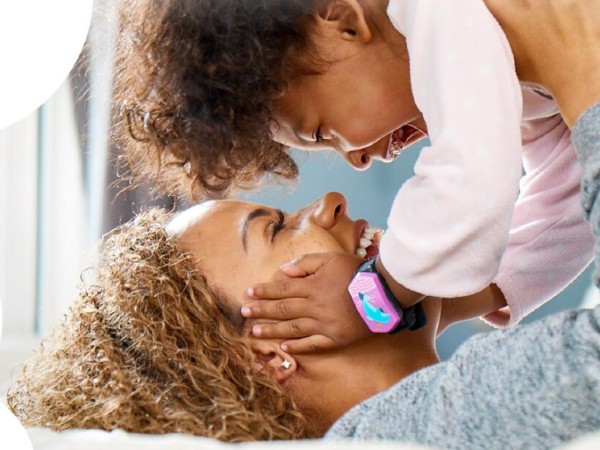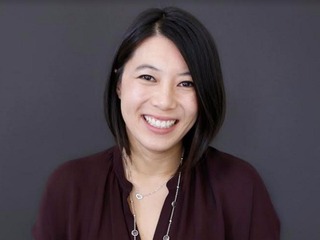 Chronic illness in the US is getting worse, with nearly half the population of the US now suffering from at least one chronic disease. This a problem even among children: roughly 27% of kids suffer from a chronic condition, while about 6% have more than one chronic condition, such as diabetes, asthma, autism, and congenital heart disease.
Chronic illness in the US is getting worse, with nearly half the population of the US now suffering from at least one chronic disease. This a problem even among children: roughly 27% of kids suffer from a chronic condition, while about 6% have more than one chronic condition, such as diabetes, asthma, autism, and congenital heart disease.
Having a child with a chronic illness presents it’s own specific set of problems, including how to care for them, said CJ Swamy, co-founder and CEO of Kiddo, a remote patient monitoring platform for pediatric patients.
“These children need a very different system of proactive care management. Unfortunately, care coordination today is supremely difficult due to the disjointed nature of healthcare delivery. Families have limited access to care support systems and providers struggle to devote resources for ongoing care management,” he said, noting that he has experienced some of these issues himself as the parent of a child who has sensitive airways.
Kiddo’s solution involves a wearable and a telehealth platform, as well as an app for parents that will alert them if their child is in danger.
“I wanted to be able to react to an issue before it happened while being able to share better data with our physician so that she could adjust our child’s treatment protocol if needed. At the same time, as all parents want, I wanted to avoid costly visits to the ER or doctor’s office.”
Kiddo’s solution has resonated with investors, who have now infused the company with $16 million in Series A funding. The round, led by Vive Collective, which is backed Clearlake Capital, brings Kiddo’s total capital raised to $25 million; the company’s previous investors include Wavemaker 360, Techstars, the Iconiq family office, and Mojo Partners.
In conjunction with the funding, it was also announced that Cheryl Cheng, Vive’s Founder and CEO, has joined the board of directors at Kiddo.
“Kiddo aims to become the one stop health navigator and health data exchange for children and those who care for them, including parents, providers, therapists, payors and schools. This Series A funding and the support of Clearlake Capital/Vive Collective gives us the fire power to continue our growth towards that goal,” said Swamy.
Kiddo acts a care coordination platform for pediatrics, specifically focusing on children aged 2 to 15 and exclusively on children who are at risk.
Its connected care platform features a remote patient monitoring system that can capture key vitals from patients; a coaching app for parents so they can troubleshoot issues at home; on-demand telehealth services so that they can connect to medical professionals on the app; and clinical decision support so physicians can adjust treatment protocols based on actual patient data.
Here’s a scenario Swamy laid out for me for how the platform might work: if an asthmatic child is playing outside on a hot day, Kiddo’s remote patient monitoring system will detect a change that could mean the child is starting to struggle with breathing and that they are at risk for an asthma attack. An alert is sent to the child’s parents on the app, along with recommendations from pediatricians, such as bringing the child indoors into an air-conditioned room, or offering them a glass of ice water or a calming activity. If the child’s data returns to baseline, that means the asthma attack has been averted and no more intervention is needed.
“On the other hand, if the Kiddo the remote patient monitoring system perceives a worsening of the child’s condition, it would recommend that the parents connect with their doctor immediately via telehealth and will share the necessary data with the physician so they can support the family, recommend a treatment option, or even decide if the child needs to be seen in person in a primary care or urgent care clinic,” he explained.
“With Kiddo, parents and physicians can collaborate better in managing children’s chronic and acute conditions.”
Kiddo works with health systems, benefits providers, and pediatric hospitals; so far, it has partnered with more than seven health systems, benefits providers and foundations, including UHC/Optum, PC Health, as well as several children’s hospitals across the US and Canada. In all, it now has more than 70,000 users in its system.
For its the health systems, the platform is able to give them a 10x ROI by enabling reimbursements through RPM CPT, PCM and Risk Reduction codes. On the patient side, the platform translates into better health outcomes, with more than a 50% increase in treatment adherence and a 2X reduction in unnecessary ER and physician visits.
Kiddo is seeing increased traction, including at least one inbound query from a health system per day, and it also also grew its revenue by 600% between 2020 and 2021. Swamy explained to me that this is because the whole healthcare industry is looking for ways to improve the quality of patient care while reducing the number of unnecessary visits to urgent care clinics, emergency rooms, and physicians’ offices.
“The pandemic has further accelerated the adoption of digital health and telehealth services, which are seen as a way of reducing costs while increasing access to care. But their potential is limited without the kind of data that Kiddo provides via remote patient monitoring. Physicians need qualified, actionable data to make appropriate clinical decisions, and this is what the Kiddo delivers,” he told me.
“Moreover, caregivers struggle to support pediatric patients at home or at school and hence the Kiddo proves to be indispensable by providing contextual information and education for parents.”
The new funding will be used, in part, to double the size of Kiddo’s teams in the US and Asia, which currently consists of over 21 team members; it will be hiring people across sales and business development roles, product and engineering, and medical and data science.
The money will also go toward obtaining FDA device certification, as well as expanding its partnerships with health systems and benefits providers.
“We want to support more pediatric patients and help them with a broader range of health challenges. There are 19 million children in the United States whose chronic or acute conditions could already be much better managed if their families had access to Kiddo. For us, success would be in ensuring that we can cover as many of these children as possible across as many health issues as possible,” said Swamy.
(Image source: kiddowear.com)

















